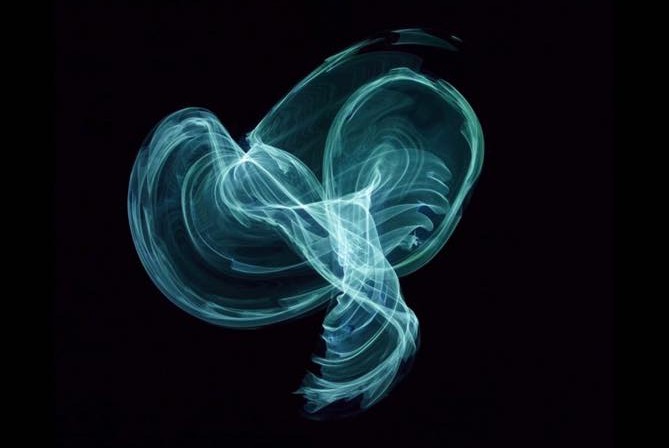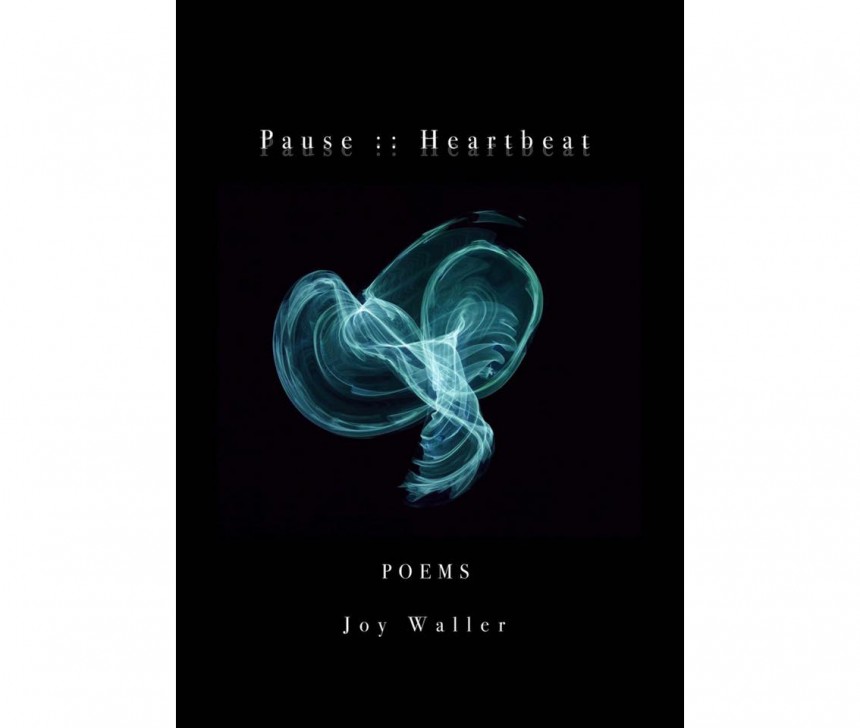
May 10, 2019
INTO THE VOID
Joy Waller’s 'Pause :: Heartbeat' explores the human extreme
Set against the neon backbone of Tokyo, Joy Waller’s “Pause :: Heartbeat” dives headfirst into the kind of existential torment that could exist anywhere on earth. Grounded in the unfiltered imagery of sex, addiction and memories that perpetually haunt, the 41 poems in Waller’s debut collection demonstrate her ability to not only gaze into the abyss, but have a conversation with it.
That dialogue opens with “Off-Center.” Waller’s telling first piece begins with swift, one-word lines that read like a soft pant as the speaker narrates intercourse with an unnamed man. Carnal descriptions of limbs, tattoos and scars snowball into a deeper, internal conflict of spiritual imbalance, represented by faulty chakras that flash and rotate the wrong way. Sex, rather than a symbol of unity or connection, becomes a mirror image of solitude, one method among “the various silencers we employ” to detract from personal crisis. Orgasms, drugs, techno, citylights — they are the ephemeral cures that make up the skeleton of Waller’s work.
Since real intimacy is rare, attempts to overcome the void are both desperate and beguiling. Inner turmoil runs parallel to physical distress in “Warning: Do Not Swallow,” which begins in Waller’s clear-cut vernacular: “voiceless and fuckless / on a sunday…,” before moving into a literal laundry list of things that have entered the speaker’s mouth as of late (breath mints, mugicha, a tongue, an earlobe). The throat, or Vishuddha in Hindu tradition, is the centerpiece of the poem and appears “swollen” — signifying a breakdown in communication, or connection. Her desire for fullness is insatiable, and the closing lines are as sad as they are blasé:
yeah, to be
honest
all that
seems ok,
but
i ache.
Not all the poems bear this level of emotional weight. Some are more playful than they are introspective (“Inappropriate Fantasies About Famous Dead People: I”); others read like brief still-lifes of the Tokyo experience. “Shibuya Dawn Sketches: II” is a nine-line piece that, through details like a pink brick wall and beard stubble, breathe life into quotidian affairs like stepping out of a love hotel at daybreak. Nonetheless, Waller’s strength lies in her longer, stream-of-consciousness accounts of the mind and body, past and present, ego and id — polarities that often clash and bleed together in ways that jeopardize the self.
Take “Mode on / Mode”: a brisk catalog of identities that shift according to context. In the course of what feels like a single day, the speaker veers from “raver goddess mode” to “Desk job office drone work” mode to blatantly antithetical pairs like “Happy mode / Sad mode.” On one hand, the act of wearing different masks is liberating; selfhood need not boil down to a single label. Then again, constantly rising to the occasion is exhausting. When surviving becomes a game of managing expectations and emotions — not to mention addiction — isolation becomes ideal. The poem dissolves to a standstill: “I need some time alone mode / Mode off,” ending on a note of either peace or despair, or both.

In one of his many novellas, the Colombian novelist Gabriel García Márquez declares that, “The secret of good old-age is simply an honest pact with solitude.” The final poem in “Pause :: Heartbeat” echoes this sentiment through the unembellished metaphor of life as a song on the radio. Disinterested in the noise that occupies the masses, the speaker retreats inward to think of “something else” whose melody is “lonely / but / a defined lonely.” In a way, “Pop Song” can be read as a reclamation of solitude, arrived at after 74 pages of tossing and turning through a female conscience torn and nurtured by her urban reality.
Raised in the mountains of British Columbia, a cold and unfriendly place according to the writer, Waller creates poetry that stares hard at worlds within and without. “Pause :: Heartbeat” celebrates the details of being a human, a pendulum existence that swings from one extreme to the next, carnal and astral, connected and detached, caving and persisting within the beauty a neon wasteland.
“Pause :: Heartbeat” is available for purchase on the Tokyo Poetry Journal website.







